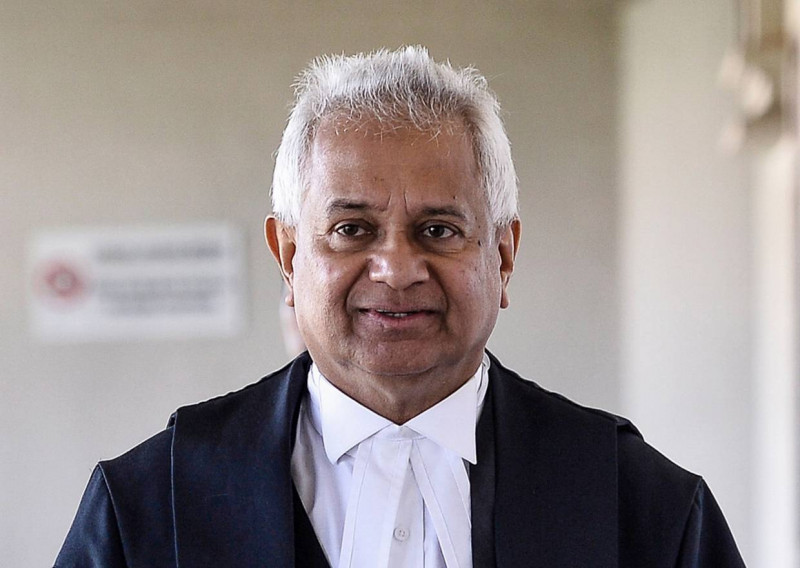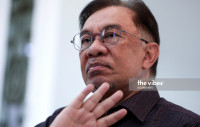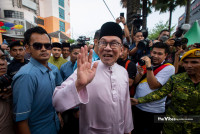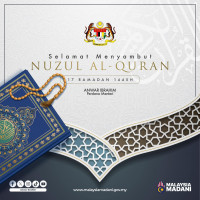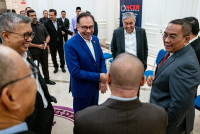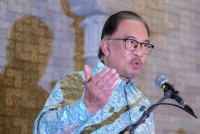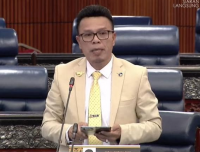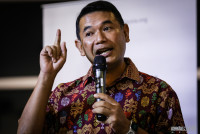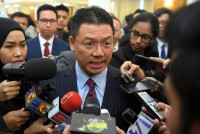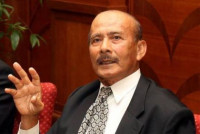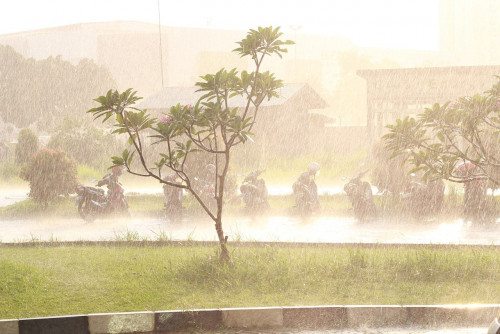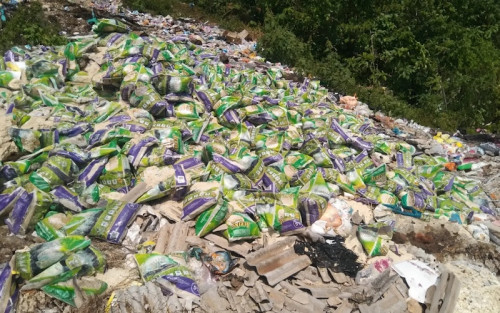TAN Sri Tommy Thomas’ memoir, My Story: Justice in the Wilderness, recently hit the streets, and thanks perhaps to the public’s yearning for sensational news about anything other than the coronavirus or new standard operating procedures, has been selling like hot cakes.
But seriously, there is much to commend and, to poach a turn of phrase from Winston Churchill, never in the field of memoirs has so much been written by so many about so (little).
First, let me roll out the good vibes: Thomas’ portrayal of family and the importance of bonding with loved ones and holding fast to faith reminds me of Alexis de Tocqueville’s “habits of the heart”, the unspoken penchant that shapes our lives, our choices and actions taken unconsciously by force of habit.
Throughout the book, Thomas stresses the centrality of constitutionalism as the mainstay of democracy, freedom and justice, and why championing reform and transparency is a virtue in itself.
I doubt any reform-minded quarter would argue with that.
Be that as it may, the importance of fighting for causes pro bono publico and to advance the interests of the underdog is woven seamlessly into the fabric of the narrative, manifesting no doubt Thomas’ own predilection to work for the common good.
These are profound points of merit and the list can go on, but I believe the point is made.
In the age of digital transformation, this is a book that is certainly worth the paper it is printed on, at least for the general public and those not cut to the quick by the criticism, imputations, or worse, outright indictments.
Nonetheless, unlike the over-the-top advocates and cheerleaders, I believe there is much to criticise as well.
Indeed, in many ways, Thomas appears to shoot first and ask questions later. He takes no prisoners and, in the process, many casualties come in the line of fire. In fact, no one that matters is spared, including me, of course.
I choose to believe these aren’t slurs at all but candid and frank comments made in good faith. And criticism is healthy, an essential element of any functioning democracy.
In any event, I can take a lot on the chin, let alone a couple of bum raps and innuendoes. So, what I am about to say concerning the “dark side” of Thomas’ memoir is not personal. It’s about some of the things said and unsaid about others that betray the flaws of a book otherwise of impeccable quality.
To my mind, some of these flaws are fatal, and while some others may be less so, they are certainly not something we can turn a blind eye to.
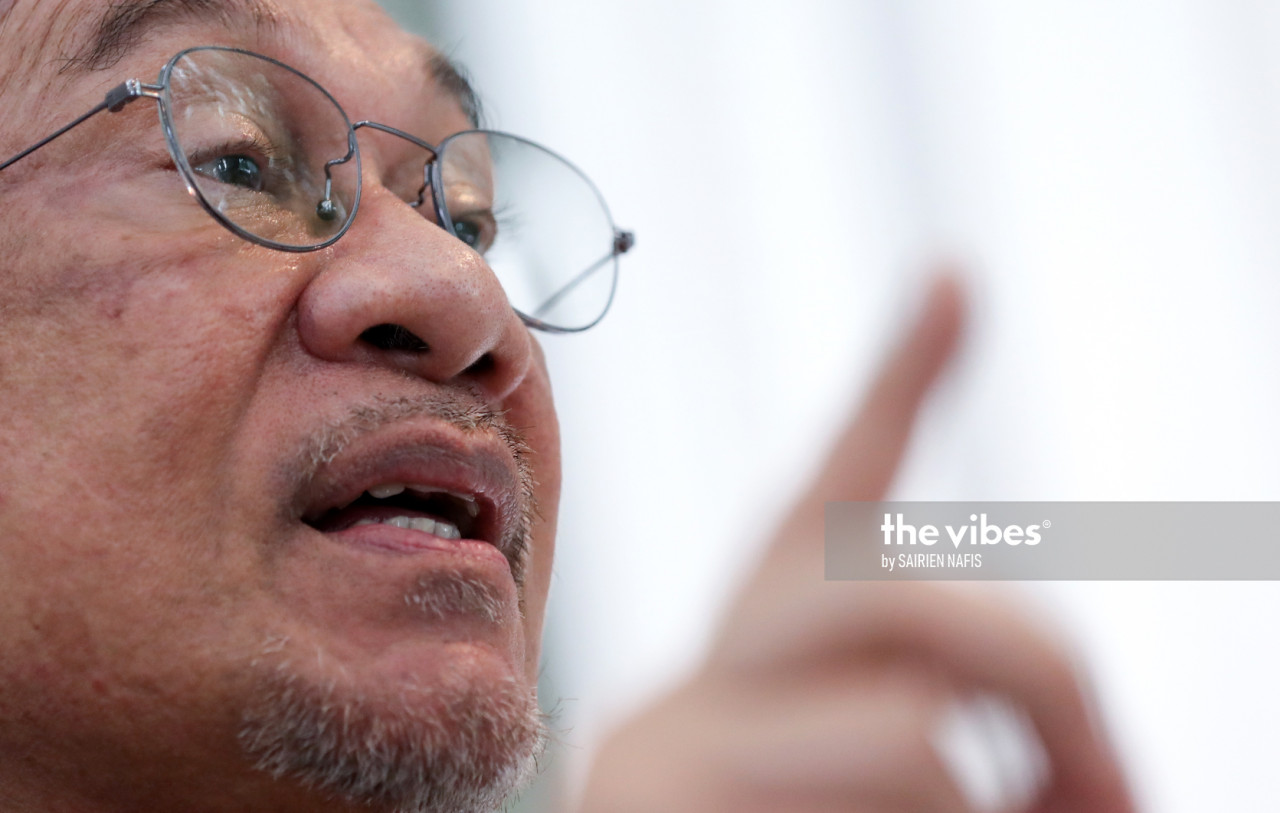
Perhaps a quick word to contextualise my friendship with Thomas is in order.
I have known Thomas since the 1980s. We even found ourselves on the same side during my infamous 1998 sacking and the malicious persecution that followed, which underlined our belief that Malaysia’s judiciary had been compromised. Closer ties only started after my release from Sg Buloh (Prison) in 2004.
Since then and until he assumed office as the attorney-general (AG), he had represented me pro bono in several civil cases. And, shortly after my release in 2018 and Pakatan Harapan’s victory in GE14, I found myself journeying to Kota Baru in an effort to avert a potential crisis after Tun Dr Mahathir Mohamad’s appointment of him as AG of the coalition and the delay in obtaining the Agong’s royal assent.
More instances of the two of us falling on the same side, in terms of our concern for the state of Malaysia’s affairs, can be seen in the far more compelling analysis presented in his 2016 collection, Anything but the Law.
Perhaps his publicist demanded something more provocative in this follow up. And, without doubt, I can accept that he has succeeded on this point, but unfortunately at the expense of more evidence-based rational argument, that he has proven he is capable of putting forward.
I begin my criticism with Thomas’ assertions with regard to May 13, where he alleges that “the evidence points to a coup by Tun Razak”.
Most damning indeed, and with one stroke of the mighty pen, Thomas unleashes a brutal assault. The late Tun Abdul Razak Hussein, Malaysia’s second prime minister, has not only been credited as the father of national development, but also as a leader who was most certainly committed and dedicated to the rakyat and the nation.
Razak, of course, was human, just like any of us, and therefore subject to manifold imperfections. And it is important for us, as a society of critical thinkers, to de-romanticise certain historical notions.
I cannot fault Thomas for attempting to remove the rose-coloured glasses of yesteryear, but it is essential that our history is contextualised and given a most robust analysis.
Thomas goes on to say that it is “difficult to believe that Tun Razak did not at least acquiesce in the face of the large gathering of youths of one race shouting and screaming abuse at the other races”.
This passage attempts to give us a raw reality of what happened back in 1969. Yet instead, it takes one viewpoint and simply looks through another’s eyes, retaining the same emotion and virial only in reverse. And we are left wondering what purpose this is to serve.
And, this goes especially so in these dangerous times of fake news and conspiracy theory.
Say what we will of Razak, he, along with anyone else, deserves a contextualisation for claims waged against the past; a contextualisation Thomas sees no need to provide.
For the time in which Razak found himself, we cannot deny that he led this country through the new beginnings of post-independence, after our first prime minister Tunku Abdul Rahman, and pulled our agrarian economy away from grinding rural poverty towards greater socio-economic development.
My fear, then, is that Thomas hopes to take the lens of Razak and May 13 as he does in order to draw a conclusion, so as to examine the use of the emergency, perhaps even in more contemporary circumstances.
And, while such a study could be enlightening, it must be the case that our evidence leads us to our conclusions, and that we do not find ourselves fishing for speculation to fulfil preconceived and potentially highly problematic conclusions.
This is not how we do law, and it is my hope that our legal practitioners would oppose such methods of deliberation.
Here was a man who was such a workaholic that he died in office, unable to rest on the laurels of a life lived, perhaps never even considering it a suitable way to bookend a life.
Thomas asserts that there is evidence for his claim, but the only evidence that is adduced here is purely conjectural and such recklessness borders on conspiracy theory, a realm we must all tread lightly into in these times of fake news and hyperbolic gossip.
Defenders have also come out to say that such a claim has been extensively covered in Kua Kia Soong’s 2007 book, May 13: Declassified Documents on the Malaysian Riots of 1969.
But there is nothing in the book that could be used as evidence to make such an assertion any less conjectural.
Allah reminds us in Surah Yunus: 10: “And surely conjectures can in no way replace the truth.”
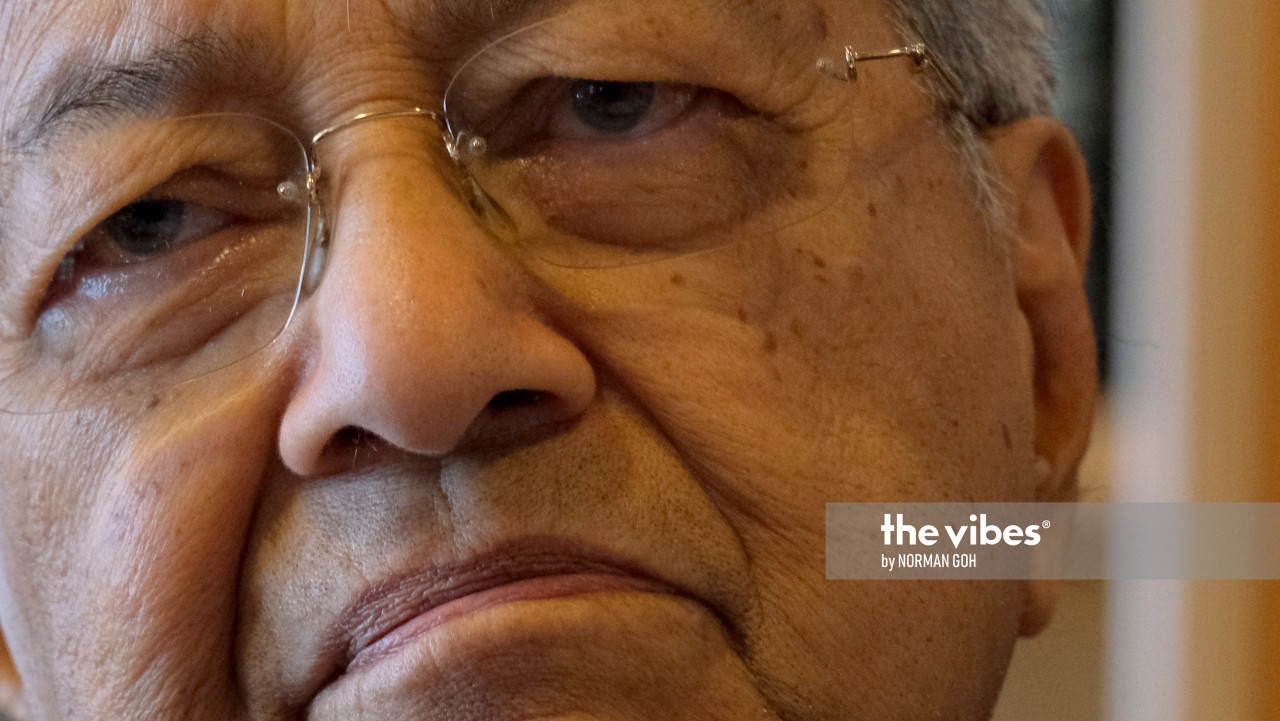
Hence, despite Nazi propagandist Josef Goebbels’ mantra, no amount of repeating of this conjecture will transform it into the truth. Further, justifying the allegation by resorting to the cui bono principle will not stand up to scrutiny in a court of law and, more so, in the court of public opinion.
What remains is an affront to the collective consciousness of Malaysians, particularly the Malay community, that holds and cherishes his memory close to their hearts. I believe that coming from someone who has held the highest legal office of the land, it is so irresponsible that it is res ipsa loquitur, and I mean it beyond the confines of legal jargon.
Another sucker punch is delivered in Thomas’ allegation that former solicitor-general III Datuk Mohamad Hanafiah Zakaria is incompetent in leading and supervising the prosecution of one of the 1MDB corruption cases in 2018.
Hanafiah has lodged a police report and I shall not go into its specifics.
Suffice it to say that here again, Thomas seems to have gone off the rails and put his foot in not just his own mouth, but Hanafiah’s, too, as well as possibly the entire AG’s Chambers’, because it would be obvious that the remarks have caused grave embarrassment to them.
Thomas’ successor Tan Sri Idris Harun has made no bones about it, condemning the book as “an insult to the legal profession and has demoralised practitioners”.
I shall not repeat the litany of complaints and grouses voiced by various quarters in defence of the AG’s Chambers, but I will go even further.
It would appear that in casting aspersions on the AG’s Chambers with such unkind remarks, Thomas also added insult to injury, intoning that “public sector lawyers had public service attitudes (and) were civil servants, earning a fixed monthly income and awaiting pension upon retirement”.
In one fell swoop, Thomas not only insulted the AG’s Chambers, but publicly disparaged the entire civil service of the nation. The notion that civil servants are in service just to earn fixed salaries with the only ambition to collect their pensions when they retire is the sort of resentment founded in anger and slight, not rational criticism.
Such a gross generalisation is unbecoming. Herein lies the book’s Achilles’ heel. And this is where a wedge is driven between Thomas’ and my own experiences with this system, which we both agree is in need of drastic reform.
It betrays a deep-seated, even Freudian-like, prejudice against Malays fomented through years of racism.
I am reminded of Syed Hussein Alatas’ The Myth of the Lazy Native, which so eloquently demolishes the colonial construction of Malay natives (including Filipino and Javanese) from the 16th to the 20th century.
With the encrustation of time, these myths coalesced into “a one-sided colonial view of the Asian native and his society”. It is important that we avoid remarks that could be interpreted as an embodiment of that innate sense of superiority that the white men used to have over their colonial charges.
Yes, indeed, I too have had my own dark experiences with the AG’s Chambers. Yet, despite the disgrace and scandal experienced, I cannot confine the lot or make a statement of generalised doubt as to their competence, capabilities and professionalism.
One bad apple does not spoil the entire barrel, and I strongly believe that we are blessed with an efficient, effective and professional organisation.
In many instances, and across the board throughout the ministries, government agencies, and various public bodies and institutions, I have worked with and encountered so many public servants who are not just competent in their respective fields, but whose motivation and drive to excel in serving the people far exceeds those even in the private sector.
We have numerous instances of public servants and senior officers in the AG’s Chambers, exemplified and excelled with a professional work ethic: dedication, discipline, diligence, competence and integrity.
I am therefore utterly dumbfounded how Thomas, as a person who, by many accounts, is soft-spoken and humble, a strong proponent of rule of law, fairness and justice, could have adopted such a condescending attitude towards our civil servants and uttered such insensitive, high and mighty remarks.
I would agree that the AG’s Chambers and the civil service do require a great deal of scrutiny as part of the ongoing need for an agenda of reform, but blanket generalisation and Thomas’ approach of throwing the baby out with the bathwater presents a potential hinderance to progress.
Thomas’ downward spiral of condemnation leads him to a confounding mess of contradictions. This dish is not only served cold, but topped with an entire chapter on the highly sensitive topic of racism.
Appropriate enough of an issue, but unfortunately, and to my great disappointment, this comes off as somewhat one-sided with the preponderance of the blame being levelled on Malay leaders, giving the impression that racism is a malady afflicting only the Malay community.
Not one word is said about the racism that is inherent among the other communities as well, and this is yet another fatal misstep. Certainly, no one should celebrate racism. On the contrary, we must clearly condemn it.
I am sure Thomas knows that what is good for the goose is also good for the gander, but failing to recognise that racism in Malaysia is a systemic cultural and political problem, which has been exacerbated by government policies, his words offer little value to the discussion we all need to be having.
We must instead take a more critical examination of this issue, putting in check our own ignorances and uncertainties, conscious and unconscious, if we ever hope to see the wounds of 1969 healed and rebuild a new, united, just Malaysia.
Regarding Thomas’ remarks regarding the Samirah murder trial, which is still ongoing, I remain stumped as to why they were made in the first place.
Quite apart from the fact that the trial has no relevant bearing on the tenor or flow of the narrative in the memoirs, it is common knowledge to have known that the comments are decidedly sub judice and would prejudice the current court proceedings.
Again, why would Thomas, with his years of experience at the bench as well as expected familiarity with the law of contempt (having been AG), go on such a kamikaze frolic with nary a care that these statements would come back to haunt him?
I believe I should stop here even though, as Robert Frost would put it, I still have miles to go before I sleep. Thomas is being sued left, right, and centre with countless police reports being lodged against him at the same time.
The symphony of approval and appreciation of his memoirs is now slowly but surely being drowned by the chorus of condemnation growing louder by the day.
Nonetheless, although it is true that if one cannot stand the heat, one should not have gone into the kitchen, reports that the Home Affairs Ministry is threatening to have the book banned are indeed disturbing.
Back in 1644, John Milton published Areopagitica, making an impassioned plea against licensing and censorship to the English Parliament premised on the principle that it is the duty of every rational person to take responsibility for his beliefs and actions and build a society in which decisions are reached by open discussion.
Thus, in as much as I subscribe to the belief that I am entitled to exercise my right to criticise Thomas’ book, I vehemently oppose any move to ban it.
I believe that, subject to the laws of slander, libel, and criminal defamation, Thomas should be allowed to exercise his constitutional freedom of expression in a manner that would foster the public contestation of ideas.
It is in this sense, too, that I express my disagreement with Thomas’ views and remarks.
Silencing voices has never done the work of progress. And I must say, Thomas offers a rich voice that further illustrates the multicultural and diverse nature of our nation and his opinions and views are as important as anyone else’s.
Unfortunately, Justice in the Wilderness in a sentence to me is a tragedy of generalisation, and this flawed angle of investigation needs to be taken with a hefty amount of scepticism to insure we do not betray our aims of being a plural community in harmony.
But, we mustn’t lose sight of the fact that Justice in the Wilderness is his story, and while we may continue to bicker and quibble over the contents, ultimately, it is for him to tell it the way he wants.
Often, those who desperately seek to ban another’s words only feed the public desire to hear them. To avoid such counter-intuitive results, let us have our differences settled on the battlefield of reasoned words and ink.
After all, the groundwork for several long-overdue dialogues needed in this country waits for us to critically explore. – The Vibes, February 9, 2021
Datuk Seri Anwar Ibrahim is Port Dickson MP and opposition leader



